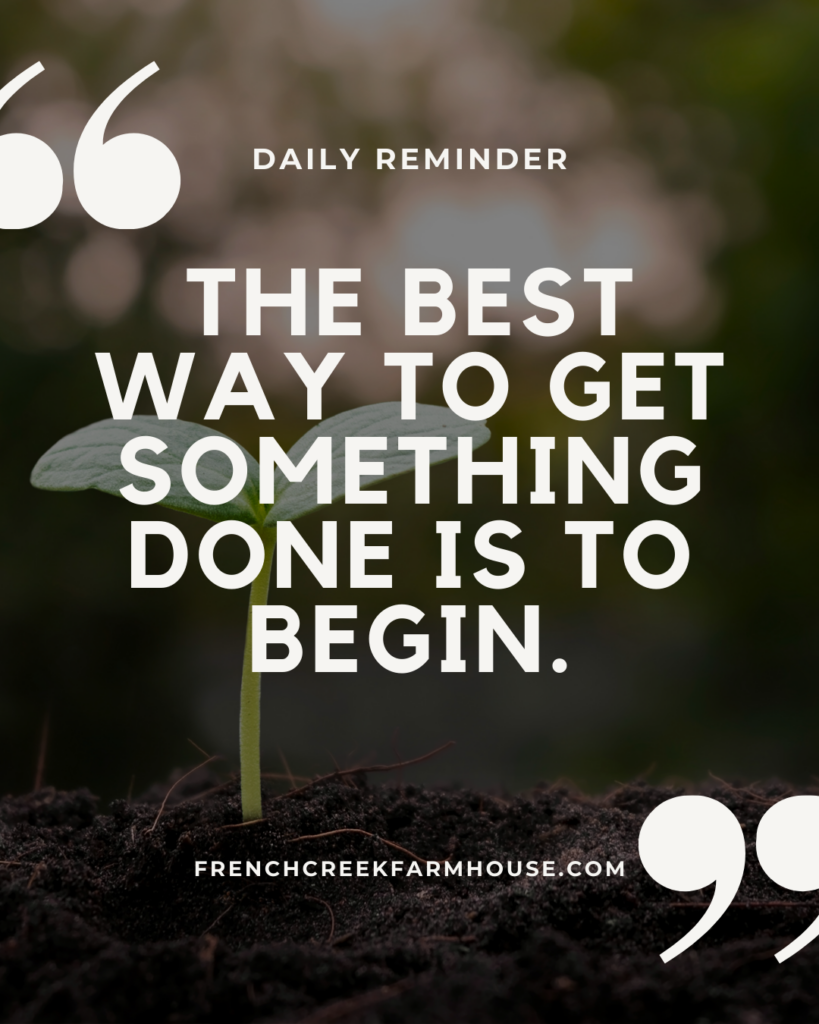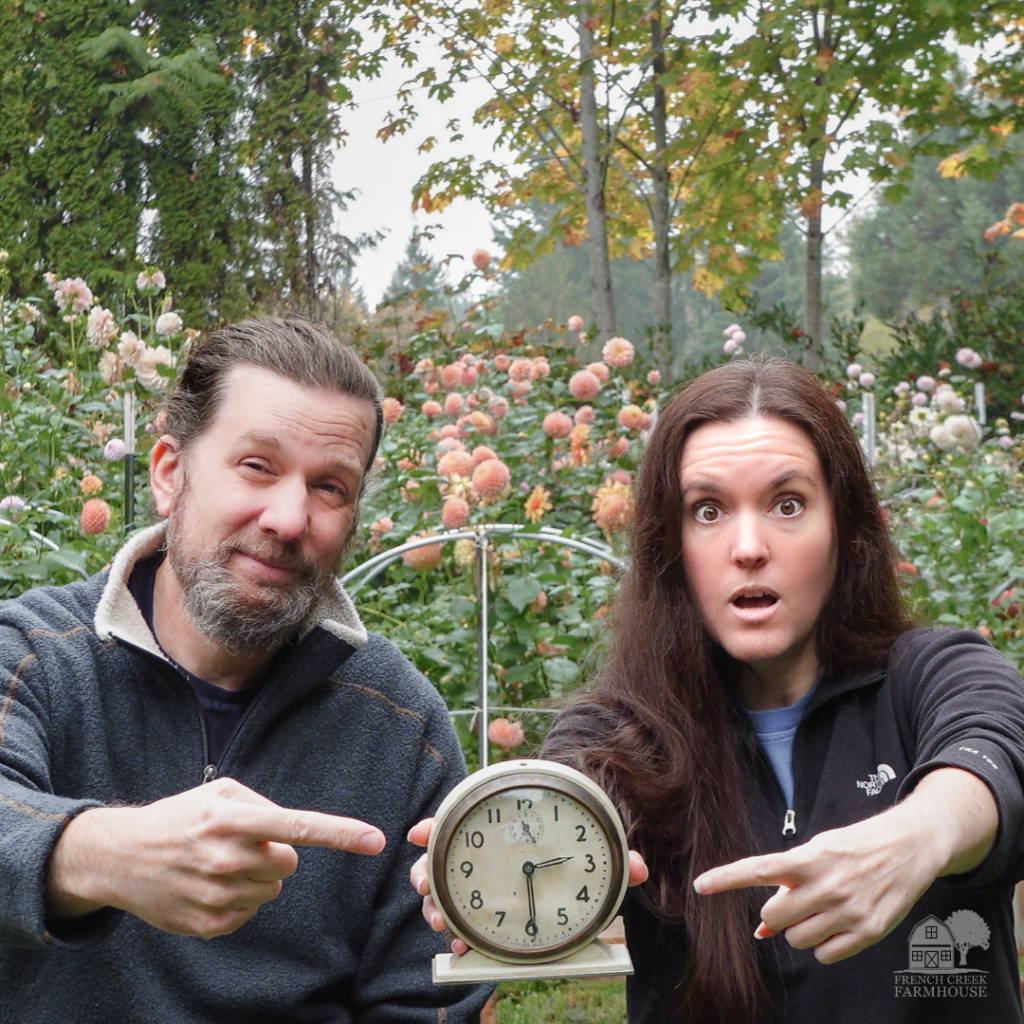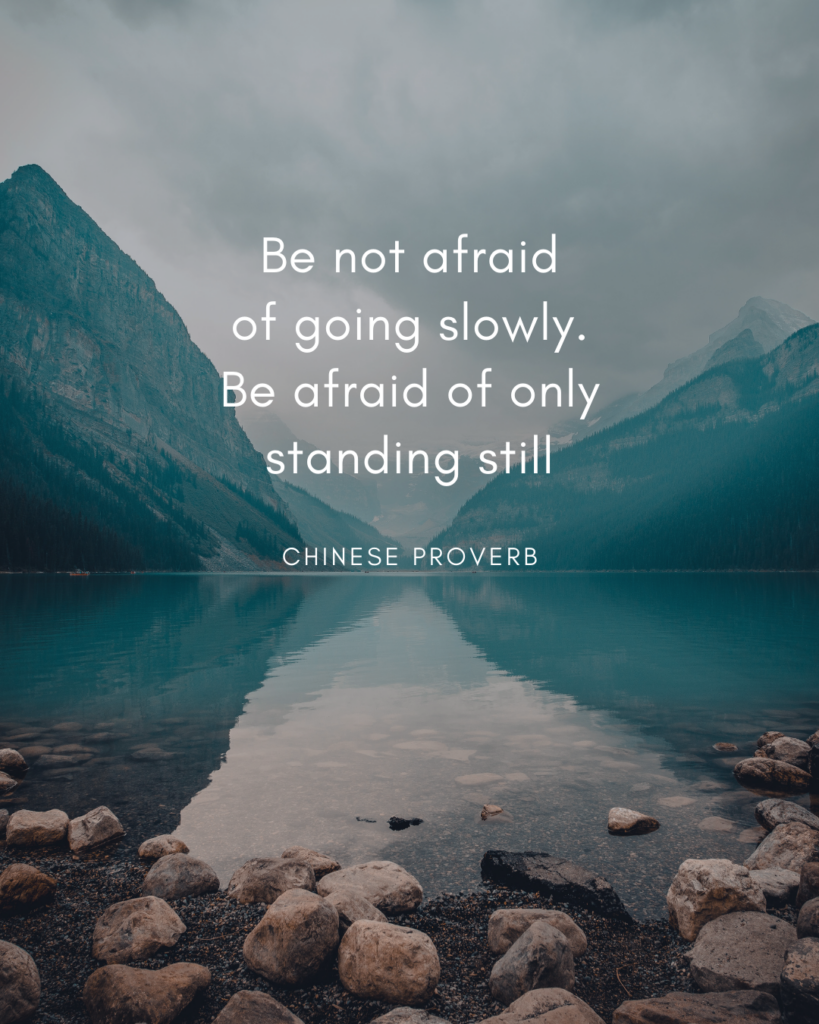Overcoming Procrastination: Don’t Waste Your Life

If you’re human, and presumably you are, then you are an expert in procrastination. At some point or another, we have all experienced procrastination by putting off something that we know needs to be done in favor of something less important. It’s a strange phenomenon because we know it only keeps us further away from our goals, yet we just can’t seem to keep ourselves from doing it! So, instead of wasting another second of our lives, let’s have a conversation about overcoming procrastination.
And let me preface all of this by saying that you are not alone in this struggle. We all do it to differing degrees and with varying frequency.
Even if you have a PhD in the field of psychology and have an advanced understanding of its inner workings, you will still deal with this. Ask me how I know. 😏
The simple fact is, procrastination is part of the human condition. But that doesn’t mean you have to suffer with it. Overcoming procrastination is entirely possible, and when it inevitably sneaks into your life, you can confront it and get on with the life you want to be living.

Click here to subscribe to our channel, and never miss an episode!

Disclosure: This is not a sponsored post, and I have received no compensation for sharing anything that follows. Some links within this blog may be affiliate links, and I might earn a commission if you make a purchase through that link. This usually amounts to cents, not dollars, and helps to support the projects featured on this blog. I only recommend products from companies that I have found to be trustworthy. Read my full disclosure here.


Understanding Procrastination
Before you can begin overcoming procrastination, you need to understand what it is and why it’s happening in the first place. Procrastination is a psychological phenomenon related to emotional regulation. Here’s how it works…
You’ve defined some sort of goal for how you want your life to be. Now, these can be explicit goals for things you’re trying to achieve, or implicit goals that are part-and-parcel of your lifestyle.
For example, an explicit goal might be that you want to lose 20 pounds, and so you’re trying to go to the gym 3 times a week.
An implicit goal might be putting dinner on the table each night because you’re a parent, and you’re responsible for feeding your kiddos.
Implicit goals can also be thought of as responsibilities or obligations because they’re intertwined with some pre-existing aspect of our lifestyle. Compare this to explicit goals which are more often things we’re striving to create in our lives, but haven’t yet attained.
Procrastination occurs when we don’t do the things that need to be done in order to support the goal. But why?
Brass Tacks: Procrastination is About Emotional Regulation
At the core, procrastination is about our ability (or rather, inability) to regulate our emotions. When there is a task to be completed and you keep avoiding it, you aren’t actually avoiding the task itself. You’re actually avoiding an undesirable emotion that the task represents for you.
Imagine it’s Sunday evening, and you know you need to prep your lunch for work the next day. But, for some reason, you just don’t want to do it, and instead, you do a bunch of other things that are lower priority. This might be because you know you have a difficult meeting happening at work on Monday, and you don’t really want to be there.
Making your lunch isn’t actually such a difficult task, but if it’s tied to those uncomfortable feelings about going to work…boom! You’ve arrived at Procrastination Station!

Name It and Claim It: Identifying Procrastination Triggers
That example might be fairly obvious, but often, we can’t readily pinpoint what’s triggering our procrastination. All we know is that we’re falling behind, and it feels like a mystery.
Or worse, it leads to self-loathing, critical self-talk, and a feeling of hopelessness or apathy about why you aren’t living the life you want to be living. (Ex: “I’m so lazy“, “I’m such a bad mother/father“, “I’m never going to get my life together“, etc)
Procrastination can be triggered by any number of possible undesirable feelings. Some of the most common ones are:
- Fear of failure
- Overwhelm or burnout
- Fear of negative feedback/criticism/rejection
- Having inauthentic goals (often, those goals that are designed for someone else’s approval)
- Boredom
- Issues with self-confidence or self-worth
- Resentment
- Struggles with perfectionism
This list is far from being comprehensive. The real key is to lean into what’s happening and explore what feelings are underlying your procrastination.
If you’re having trouble making headway, working with a therapist or coach can be incredibly valuable.

The Myths: What Procrastination Isn’t
Well-meaning friends and family members might feel a lot of empathy for what you’re experiencing, and they might give you really bad advice for how to deal with it.
Myth #1: You just need better time management skills.
If you’re truly procrastinating, it has nothing to do with your time management skills. In fact, many procrastinators (myself included) are incredibly productive while procrastinating. We just aren’t doing the things that actually need to be done.
Remember, procrastination is a problem with emotional regulation. The phenomenon is characterized by avoidance behavior and a tendency to prioritize short-term pleasure over long-term goals.
Time management, on the other hand, isn’t driven by psychological factors. Instead, time management is about poor planning, scheduling, and organization skills.
Now, you could certainly be dealing with both procrastination and time-management issues, and this is frequently the case. Procrastination can lead to poor time management, as delayed tasks accumulate and become overwhelming. Addressing one aspect may positively impact the other, potentially creating a cycle of improvement.
But they absolutely aren’t the same thing, and getting more organized will not, by itself, stop you from procrastinating.

Myth #2: Procrastination is just laziness.
Just like the myth of procrastination being about poor time management, there are many people who procrastinate with amazing levels of productivity.
Procrastination is about postponing something, even though we have the intention of completing it. It’s about pursuing short-term pleasure over a long-term goal, even when that goal is important to us. And it all happens because something is getting in the way, psychologically.
Laziness is about a general unwillingness to engage in activities or even put in effort. People are generally lazy because they’re disinterested, or because they don’t perceive any rewards for what’s required. Lazy individuals may avoid tasks simply because they find them unappealing or believe the effort it would take isn’t worthwhile.
The difference between procrastination and laziness ultimately comes down to motivation and intent. For example, a procrastinator may delay starting a challenging work project, while a lazy individual may avoid any work-related activity altogether.
Myth #3: Procrastination is a lack of willpower.
This one is tricky because, often, the way we stop a single act of procrastination is through willpower. This happens when you buckle down and complete the project right at the last minute, for example. For that reason, many people think you just need more willpower, and procrastination will end.
Wrong.
You can use willpower to get yourself out of a specific encounter with procrastination. That part is true. But, without addressing the underlying cause of procrastination, you won’t prevent yourself from falling right back into it again. And, probably sooner versus later.
If the goal is overcoming procrastination, then you have to get to the root–no matter how uncomfortable that is. “Grin and bear it” just won’t do the trick.

Life in Chains: Consequences of Procrastination
Trying to avoid emotional risk or uncomfortable feelings ultimately leads to a smaller life with fewer opportunities. Over time, there’s a good chance you’ll wake up one day down the road with the realization that you’ve squandered your one and only precious life.
All the good intentions of “someday” achieving your goals and dreams won’t matter if you don’t embrace the task of overcoming procrastination while there’s still time.
The problem with procrastination is that it creates a dissonance between how we say we want to live our lives, and how we actually do. That gap leads to vast amounts of discontent and unnecessary suffering in life.
To paraphrase one of the greatest bands ever, the irony of the situation is that we live our lives in chains, never realizing that we hold the keys to free ourselves. But it can only happen by doing the difficult work of figuring out what, within your own mind, is holding you back from what really matters to you.
“So oftentimes it happens that we live our lives in chains
Already Gone, The Eagles (1974)
And we never even know we have the key.”

Set Yourself Free: Strategies for Overcoming Procrastination
If overcoming procrastination is something you’re serious about, you’ll need to prepare yourself to do some interpersonal work that is, quite honestly, uncomfortable. What you need to ask yourself, however, is which type of discomfort do you want to live with? The discomfort of living a smaller, less fulfilling life? Or the discomfort of working hard to change your story and create the life you really want?
1. Identify Your Procrastination Triggers
The biggest, and probably most difficult, thing you can do to overcome procrastination is to get in touch with the underlying feelings that are causing you to procrastinate in the first place.
Sometimes, we’ll think we know the trigger, only to find that our so-called psychological baggage contains a false bottom. The real source of your feelings might be deeper than you first realized.
Why this is difficult is that your brain is wired to protect you from discomfort. Throughout our lives and experiences, we construct layers of emotional armor designed to shield us from distress.
Naturally, when we go poking around trying to figure out what’s keeping us stuck, our brain doesn’t want to reveal those truths because that feels risky.
During my career, I’ve worked with clients through these exact situations time and time again. They truly want to overcome the self-imposed limitations on their lives, but it takes a whole lot of work to be utterly and radically honest with yourself about what’s getting in the way.
It may not be easy, but it is worth it. Once you understand what your triggers for procrastination are, you can begin to write the rest of your story to go in the direction that you want.

2. Get in touch with your “why”.
Knowing your procrastination triggers is just the beginning, because next you need to reconcile the uncomfortable feelings with the goals you have for your life. This happens by connecting with your “why”, or your purpose.
A great exercise for this is called The Five Whys. The theory is that getting to the true source of why something is important to you goes beyond the obvious and more superficial reasons that we think.
Let’s say your goal is to go to the gym three times per week. You might think that your “why” is because you want to lose 20 pounds. But, ask why again–why do you want to lose 20 pounds?
If you ask the question enough times (at least 5), you will eventually get to an incredibly powerful, raw, emotional truth. Being able to connect with your deeper “why” is an incredible tool for moving your life forward in the direction you truly want and overcoming procrastination.
When you’re able to decode the puzzling intersection where your purpose meets the emotional sources that are holding you back, you will be a force to reckon with in this world. Nothing will hold you back.
And that is the secret!!
What I’ve just said is the single biggest secret to achieving every success you want in life. It really is that simple. But simple is not the same thing as easy.
Putting that into practice is hard…so hard, in fact, that only a small percentage of people will ever do it. But you can certainly be one of those people, so long as you’re willing to do the work.
In my own career, I’ve had the honor of working with some incredibly high-performing people: C-Suite executives, musical artists, actors, athletes, stand-up comedians, film directors. These are people who have already achieved what most never will, and yet they still struggle with these same challenges.
Again, simple is not the same thing as easy. But I can promise you that everything you want to accomplish is within your reach.

3. Treat yourself with kindness.
You aren’t about to help yourself overcome procrastination by beating yourself up. Throwing negativity on the fire only makes you feel worse, which makes it that much harder to break the cycle of procrastination.
Listen, the reasons behind why you’re procrastinating came from somewhere. It might be that you’ve lived through some tough stuff. As a result, your brain created some protective mechanisms in an attempt to help you feel safer and not deal with some unpleasant emotions.
Applaud your brain for the effort. It was a well-intentioned endeavor.
But now, you have bigger things you want to accomplish and the safety wheels meant to prevent you from crashing have to come off.
Don’t be mad at yourself for the coping tools you adopted during challenging life experiences. Just show yourself some love, acceptance, and kindness…then reassure yourself that you will be able to navigate this next part without that armor.

4. Make it a daily practice.
Procrastination isn’t something you can just “fix” about yourself and you’ll never deal with it again. You will always deal with it. It’s just that once you know how, it becomes a practice that helps you manage and navigate through the challenges.
Think about it like how putting on shoes keeps you from cutting up the bottoms of your feet. Wearing shoes doesn’t mean that you don’t ever have to walk on stuff that could hurt your feet. You still do, but now you have shoes that help you get through it.
You make the choice to put on the shoes every time you go outside. Or, sometimes you don’t do it, and you might pay the consequences. But the point is that the choice is yours. When it comes to overcoming procrastination, you can choose to make it a practice to use tools that will help you get where you want to go.

How Procrastination Shows Up On Our Farm
As I’ve already said, procrastination is part of the human condition. No one is immune, and that includes us. Decades-long careers in the field of psychology for both of us doesn’t inoculate us against the same struggles that every other person encounters.
So, yes, we procrastinate, too.
One of the emotional triggers we know we face on our farm is the feeling of uncertainty. We created a five-year plan when we decided to start our farm, and we put a whole lot of thought and research into that. But it’s impossible to eliminate uncertainty–no matter how well you plan.
We’re currently beginning our second year of farming. We have over three years of growing experience under our belt, but we define farming as “growing for profit”. Our first couple years were spent trialing, building infrastructure, and just generally figuring out what the heck we were doing.
{ Related: Going From Homestead to Farmstead }
Remember–we decided to pursue this idea of farming with basically no experience growing at scale. The learning curve has been (and continues to be) steep.
All of that is to say that we’re marinating in uncertainty at this point in our five-year plan. Not only have we not made a dime of profit at this point, we’ve spent a whole lot of our savings investing in this goal. And, to stay on track with how we need to scale for the future of this plan, we need to put even more money in.
That’s all incredibly scary. So, yea, sometimes we fall into the trap of procrastination.
But, we know how to spot it when it happens. And, we also know how to address it, so overcoming procrastination is just something that we manage as part of our daily work.
How we’re managing procrastination on the farm…
Specifically, we trust the plan, and right now, we continue to take the steps that we outlined. We knew we weren’t going to be profitable in the first year…or probably even the third, for that matter. We knew that we were going to have to swallow that lump in our throat and spend money to build out the farm with no promises of what’s to come. We knew that we were going to invest in seed, bulbs, and tubers without any guarantee that they would produce what we need.
We went into this knowing that uncertainty loomed large, and we created a plan for the steps to take anyway. It doesn’t make any of this less scary–I still lay awake at night worrying–but it helps us to keep moving forward. And that’s what matters.

Just Keep Moving Forward
I think that people have a tendency to give themselves demerits when they don’t make progress at some preconceived rate of what success looks like. But the reality is that forward movement, no matter the pace, is progress.
In the end, I would rather be someone who overcame the obstacles in my life, even if it took some time, than someone who never tried because it was too hard.
If there’s some version of your life that you know you want to be living, just keep moving in that direction. It doesn’t matter how fast you go, or how many times you have to tinker with something that’s getting in your way. When it comes to overcoming procrastination and following your dreams, what matters is that you don’t give up on yourself.
Everything you want is on the other side of hard work. Go get it!

Ready to dig in and grow something beautiful?
Get my Free Garden journal
Let’s be gardening buddies! Sign up to join our community, and get your free printable PDF Garden Journal. This is so good!









